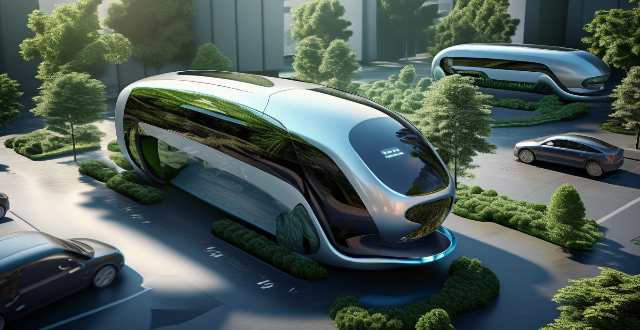The future of electric transportation systems is influenced by technological advancements, government policies, and consumer preferences. Improvements in battery technology and charging infrastructure are expected to make electric vehicles more efficient and practical. Governments are implementing policies to encourage the adoption of electric vehicles, such as tax incentives and regulations. Consumer preferences may also shift towards electric vehicles due to their environmental benefits and practicality. However, traditional gasoline-powered vehicles will likely continue to coexist with electric vehicles for the foreseeable future.

The Future of Electric Transportation Systems
Electric transportation systems are becoming increasingly popular as people become more aware of the environmental impact of traditional gasoline-powered vehicles. The future of electric transportation systems is likely to be shaped by several factors, including technological advancements, government policies, and consumer preferences. In this article, we will explore the potential future of electric transportation systems.
Technological Advancements
One of the most significant factors that will shape the future of electric transportation systems is technological advancements. As battery technology continues to improve, electric vehicles (EVs) will become more efficient and have longer ranges. This will make them a more practical option for many consumers who previously may have been hesitant to switch from traditional gasoline-powered vehicles.
In addition to improvements in battery technology, there are also likely to be advancements in charging infrastructure. As more EVs hit the road, there will be a greater demand for charging stations. This could lead to the development of faster charging technologies, as well as new types of charging stations that can charge multiple vehicles at once.
Government Policies
Another factor that will shape the future of electric transportation systems is government policies. Many governments around the world are already implementing policies to encourage the adoption of EVs. These policies include tax incentives, subsidies, and regulations that require a certain percentage of new vehicles sold to be electric.
As these policies continue to evolve, they will likely play a significant role in shaping the future of electric transportation systems. For example, if governments increase the number of required electric vehicles or provide additional incentives for consumers to purchase them, this could lead to even greater adoption rates.
Consumer Preferences
Finally, consumer preferences will also play a role in shaping the future of electric transportation systems. As more people become aware of the environmental benefits of EVs, they may be more likely to choose them over traditional gasoline-powered vehicles. Additionally, as battery technology improves and charging infrastructure becomes more widespread, consumers may find EVs to be a more practical option for their daily commutes.
However, it's important to note that not all consumers will necessarily prefer electric vehicles. Some people may still prefer the performance or style of traditional gasoline-powered vehicles. Therefore, it's likely that both types of vehicles will continue to coexist on our roads for the foreseeable future.
Conclusion
In conclusion, the future of electric transportation systems is likely to be shaped by technological advancements, government policies, and consumer preferences. While it's impossible to predict exactly what the future holds, it seems clear that electric vehicles will continue to grow in popularity and become an increasingly common sight on our roads.